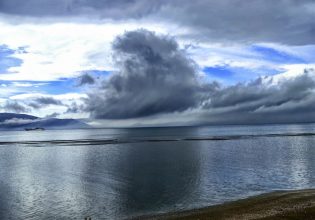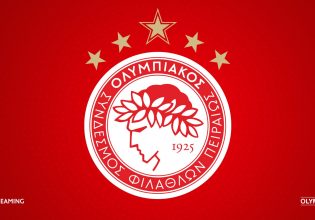Mr. Mevlut Cavusoglu΄s εxclusive interview in «To Vima»
The original English transcript of the interview that the Foreign Minister of Turkey, Mr. Mevlut Cavusoglu, gave in “To Vima”
The original English transcript of the interview that the Foreign Minister of Turkey, Mr. Mevlut Cavusoglu, gave in “To Vima” on Sunday 22 December 2019 has as follows:
Dear Minister, you must admit that the signing of the Memorandum of Understanding for the Delimitation on Maritime Jurisdictions in the Mediterranean between Turkey and the Sarraj government in Libya has caused a series of negative reactions from many sides, and not only Greece, both regionally but also from the United States and Russia. Why Turkey decided to pursue such a course which puts her against all players?
In our region there are complex problems for which every party has its own legal interpretation. Turkey from the outset has always endorsed a policy, seeking dialogue in addressing these problems. Unfortunately, our calls for dialogue have fallen on deaf ears. Most littoral countries of the East Mediterranean ignored our calls and chose to proceed unilaterally. As a journalist following these issues for a long time now, you will appreciate that no delimitation without Turkey in the Eastern Mediterranean will be conclusive. As a matter of fact, it was only Libya that our calls for dialogue echoed in. We signed a memorandum of understanding with the internationally-recognized government of Libya regarding the delimitation of maritime areas to eliminate the uncertainty concerning our maritime jurisdiction areas. Third party objections did not stop any stakeholder from concluding agreements in the region before. This was even true for the administrations, which have neither de jure nor de facto authority to conclude agreements. Turkey, as it has done in the past, will continue to defend its rights and interests in the region.
It is obvious that this MoU neglects critical norms of the Law of the Sea such as the rights of islands to all maritime zones, but also others. There is a perception that Turkey, although not having signed UNCLOS, prefers to selectively use parts of customary law and jurisprudence to support her views. Could you explain to us on which international norms or case law is Turkish policy on delimitation of maritime zones based?
We believe that the Turkey-Libya MOU is in full compliance with international law and it respects the fundamental norm of maritime boundary delimitation which is the main principle of equity. With regards to the rights of islands to all maritime zones, one shall understand that this is a restricted entitlement, instead of being an automatic one when it comes to delimitation of maritime boundaries. Unfortunately the Greek leadership and public opinion tend to disregard this fundemental norm.
In case the islands are located far away from their mainlands or in legal terms, if they lie on the wrong side of the median line between the mainlands, then these islands can be ignored in determining the CS/EEZ delimitation. Likewise if the coastal length of the islands facing the relevant delimitation area is minimal as opposed to other mainlands, such islands can only be given territorial sea rights. Many relevant factors and special circumstances such as proportionality, non-encroachment, proximity
and jurisprudence of ICJ have to be taken into account in maritime boundary delimitation. Therefore, entitlement and delimitation do not have the same meaning. There are several examples of jurisprudence and state practice in this regard, such as cases between UK-France, Libya-Malta, Nicaragua-Honduras, Nicaragua-Colombia, Tunisia-Italy, Romania-Ukraine.
It is therefore difficult to understand Greek and Greek Cypriots’ unjust claims that aim to congest Turkey into a narrow strip of maritime jurisdiction area despite the fact that Turkey has the longest continental coastline in the Eastern Mediterranean.
How could you expect a 10 km2 island, lying 2 km away from the Turkish mainland and 570 km away from the Greek mainland to create 40.000 km2 continental shelf / EEZ area. I do not think that anybody would consider it as an equitable delimitation.
With regards to the UNCLOS, it is true that we didn’t sign this Convention. Yet we agree with the spirit of the Convention in principle and most of its provisions that reflect the rules of international customary law. Our objection is simply to some of the provisions of the Convention and our decision not to accede to it -for lack of possibility for reservations- cannot be construed as an objection to all provisions of UNCLOS. US can be cited as another example in this regard.
I am sure you are aware of the criticism that, on legal terms, the MoU is not following the course set by the Libyan Political Agreement of 2015 as the Parliament has not endorsed it, so it is null and void. What will Turkey do if the Sarraj government loses power? Will Turkey insist that the MoU signed is still valid if a new Libyan government challenges it?
Government of National Accord-State of Libya is the only legitimate authority in Libya which can conclude international agreements. They have signed similar memoranda with other countries, such as the MoU with Italy in 2018 and in 2019, USA in 2018 and in 2019, EU in 2018 and Niger in 2019. Maybe you can explain why it is illegitimate to sign it with Turkey. Furthermore, according to the Libyan law, an MoU can enter into force by the approval of the Presidency Council. This approval process has already taken place. Thus, the MoU is completely legal and valid. Any change that could occur in the political scene in Libya will not affect Turkey’s position. As with any other duly signed international agreements, we count on the responsibility of succeeding governments to honor their international obligations and to safeguard their national interests.
Does your side consider the option to grant licenses for research and exploration of hydrocarbons inside the area which you delimited with the Sarraj government? Are you also planning to send a research vessel in the same area? Wouldn’t that be an unnecessary and provocative escalation?
We may consider granting licenses for hydrocarbon exploration activities, as it would be the exercise of our sovereign rights in our continental shelf in the region. In that case we will of course respect the delimitation MOU with Libya outlining the boundaries.
The exercise of our sovereign rights also and naturally includes our right to deploy research vessels in the area, as we are already doing in the other areas of our continental shelf in the Eastern Mediterranean. As for the Libyan continental shelf areas, it is up to them to draw licensing blocks and open international tenders for exploration and exploitation activities. Turkey will be ready to cooperate with Libya and other counties in the region in this regard. We remain open for dialogue. In fact, the likely existence of hydrocarbon reserves in the region and their eventual detection may foster cooperation and rapprochement among the relevant parties.
Recently, you participated in the meeting between President Erdogan and Prime Minister Mitsotakis in London. Did any of the two leaders put on the table the option for the two countries to agree and resort to the International Court of Justice (ICJ) for the delimitation of maritime zones? Would Ankara agree with such an option and under what circumstances?Would you for example be willing to lift the “casus belli” before appearing in front of the ICJ?
The option to take the matters of dispute between Turkey and Greece to the International Court of Justice was not discussed explicitly at the meeting between our President and Prime Minister Mitsotakis in London, as this is an issue for a later stage. We do not automatically recognize the compulsory jurisdiction of the ICJ and Greece has a reservation on Court’s jurisdiction on maritime boundary delimitation. Yet we are open to all options that are acceptable for both sides but we need to have a process of dialogue to reach such a mutually acceptable outcome. The London meeting focused on the continuation of exploratory talks and talks on confidence building measures. In that meeting, however, more importantly, we have openly conveyed to Prime Minister Mitsotakis that we stand ready to start discussing issues of the Eastern Mediterranean. We have been bringing this offer up for a while now. Hopefully the new Greek government will respond positively. I have to caution Greece at this point that avoiding dialogue with Turkey, while counting on the blind support of the EU would be the biggest obstacle to reach a solution. Such attitude by the Greek Cypriots has proven to be counter-productive beyond any doubt in terms of the Cyprus problem so far.
In response to your question on “Casus Belli”, I need to underline that the Turkish Parliament did not wake up one day and adopted the unanimous decision which you call a “Casus Belli”. In fact it was a manifestation of our rights and a call for Greece to respect them. Our Parliament adopted this decision as a reaction to the Greek Parliament’s attempted extension of Greek territorial waters up to 12 nautical miles against our repeated calls in the Aegean Sea. That attempt would have severely hindered the freedom of navigation and deny access to Turkey in a very large part of the maritime area, where special circumstances exist. There was a clear reason for that GNAT decision to be taken.
Many analysts consider that Turkish rhetoric as far as it concerns reaching an understanding with Greece is contradictory. On one side, Ankara appears ready for dialogue, but on the other she uses inflammatory rhetoric. Is this a constructive way to solve disputes?More generally, does Ankara want to change the provision of the Treaty of Lausanne, especially by promoting the theory of “Blue Homeland”?
You are right that we have expressed our willingness to have a dialogue with Greece. To this end, we would like to activate the existing mechanisms such as the High Level Cooperation Council, exploratory talks and the Joint Economic Commission. As I said, President Erdoğan himself has reiterated the necessity and Turkey’s intention to find peaceful solutions to existing problems to Prime Minister Mitsotakis in New York during the UN meetings, and in London at the NATO Summit. There have never been inconsistencies with our ‘rhetoric’ towards the current issues, and our delimitation agreement with Libya proves that Turkey is ready to start A dialogue with any interested legitimate party. Apparently, Turkey is always on the front pages of the Greek press, while our positions deliberately being portrayed as “aggressive”, “hostile” and “irrational». However, in Turkey, we do not harbor negative sentiments towards Greece, and the Turkish public opinion as well the press focus on facts, rather than propagating negative views. I think what you mean by “rhetoric” is actually the context in which information is exploited in Greece, be it by governments, politicians, decision makers, political analysts or press.
On the other hand, the Lausanne Peace Treaty lays the foundation of the Republic of Turkey. It guarantees peace and stability for our respective countries. The provisions of the Lausanne Peace Treaty must be upheld, of course, on the basis of reciprocity. As a matter of fact, we have been asking Greece to implement it in Western Thrace, by recognizing the legitimate rights of the Turkish Minority.
Does Turkey have open channels with other countries and actors in the Eastern Mediterranean, more specifically Egypt, Israel, Lebanon or the Palestinians, on maritime zones?
Our position is clear: Building peace and stability in the Eastern Mediterranean will only be possible through dialogue and cooperation. We stand ready today, as we did in the past, to give our full support to ensure just, equitable and peaceful solutions. There has not been any change in our position in this regard.
To this end, we have been constantly inviting all countries in the region to start negotiations. The only exception for this call is for the Greek Cypriots as this could only be possible after a comprehensive settlement. From 2004 until today, Turkey has taken constructive initiatives to turn the Eastern Mediterranean into an element of stability rather than of tension. I think it is extremely important to underline that we did not take any unilateral steps in the region, until only after it became obvious that our calls for ceasing unilateral acts in the region fell on deaf ears.
We have no ongoing talks with these countries, but we invite everyone to follow the footsteps of Libya, who has already displayed its readiness for an equitable agreement.
Αthens claims that you do not abide fully by your commitments under the EU – Turkey Statement. More particularly, the Greek side claims that Turkish authorities do not do enough to apprehend and stop migrants before they cross to Greek islands. At the same time, the number of migrants coming to Greece has been rising steadily over the last few months. How do you respond?
The Statement, which is the corner stone of our cooperation with the EU in the field of migration worked beyond expectations. Our Coast Guard and other law enforcement agencies spare no effort to prevent another crisis as we witnessed in 2015.
Although this is not a number game, perhaps talking with numbers will help us understand the facts better. In 2015, during the migration crisis, 860.436 irregular migrants reached the EU through sea border. Whereas in 2019, only 60.406 migrants irregularly crossed through sea border, which means 93% decrease comparing to 2015. Only in 2019, 8.604 migrant smugglers have been brought to the justice. In other words, while the daily average irregular crossings in the Aegean was 7.000 in October 2015, thanks to our resolute action these figures declined to around 170 today. Our Coast Guard uses more than 60% of its capacity in combatting irregular migration in the Aegean and Mediterranean. It clearly shows our determination to curb irregular migration.
Unfortunately, number of irregular migrants in Turkey increases every year. 268.000 irregular migrants were apprehended within our territories in 2018. This year, this number has reached (to around) almost 425.000. I would like to highlight that between 2016 and 2019, we have apprehended more than 1 million irregular migrants in Turkey. This creates a deterrence factor.
In order to control irregular migration sustainably, international community, the EU being at the forefront, must focus on addressing the “root causes” triggering these movements in the source countries. If nothing is done, irregular migration will continue unabated. It is unrealistic and practically impossible for countries located on migration routes to implement “zero migrant policy”. It is also not fair to expect from Turkey to shoulder solely the burden of irregular migration and refugees issue, which are global concerns. While we are hosting almost 3.7 million Syrians and trying to control the irregular migration influx from our eastern borders, we cannot accept claims that Turkey is not exerting efforts against irregular migration.
If there is a consensus on Turkey within the EU during the last couple of years, it is about our solid commitment to abide by the 18 March Statement. On the other hand, we still expect the EU to fulfill its commitments and to implement the Agreement in its entirety, such as; initiation of Voluntary Humanitarian Admission Scheme, progress on our accession negotiations, starting the modernization of the Customs Union, supporting our efforts on visa liberalization and holding high-level dialogue meetings and summits.
I would like to state again that safe and voluntary returns of Syrians to their homelands is one of the durable solutions for refugees. So far, around 371.000 Syrians safely returned to the areas we cleared from terrorism thanks to our operations. It proves that when necessary conditions are in place, Syrians return to their home country. Therefore, active support of the international community is vital for making the conditions suitable for returns in Syria. In fact, Article 9 of the 18 March Statement clearly obliges the EU and its Member States to work with Turkey in any joint endeavor to improve humanitarian conditions inside Syria that would allow refugees to live in safety.
In any case, we will continue reminding Greece that opting for cooperation with Turkey in this matter will bring results that are more effective rather than resorting to propaganda tactics against Turkey and carrying out illegal push-backs of migrants at Turkish borders.
Do you see any prospect in reaching a solution on the Cyprus problem? How do you respond to those who say that Ankara does not actually want a solution and prefer the current status quo?
Speaking of any settlement prospect on the Cyprus issue, first of all, one should answer the question “Why is there no settlement after more than 50 years?”
The answer to this question is simple: There is a lack of political will on the Greek Cypriot side.
The Greek Cypriots’ persistent denial and non-recognition of the political equality of the Turkish Cypriots still lie at the heart of the issue. No matter what they claim, the Greek Cypriot side does not want to share the power and the wealth with the Turkish Cypriots. Instead, they prefer to see them as a minority within their unitary state. As all will recall, it was the Greek Cypriots who overwhelmingly rejected the Annan Plan back in 2004, while the majority of the Turkish Cypriots voted in favor.
Unfortunately, as of today, we do not see any common ground and vision between the two sides on the Island. That’s why I proposed to hold an informal 5+UN meeting so that Greek Cypriots will be able to say what they really want. If they want yet again A partnership state, a solution that we have been striving to reach since 1968, then we will welcome this together with the Turkish Cypriots as long as both sides agree in advance on all parameters of the political equality such as rotational presidency, effective participation to all state organs, positive one vote etc. Such a prior agreement will guarantee the success of any partnership negotiation be it in the form of confederation, federation, loose federation or decentralization.
If the Greek Cypriots cannot accept the political equality, than there will be no point in discussing partnership solution. They should be honest with themselves and be ready to discuss a negotiated two state solution. Otherwise, we will not enter into the same vicious cycle, which is destined to fail again.
Turkey has always done her utmost to reach a just and lasting comprehensive settlement on the Island. We still maintain that only a negotiated settlement based on dialogue and diplomacy can be sustainable. Rest assured that we will continue to play a positive and constructive role if everyone else does their part as well.
President Erdogan met in London with the German Chancellor Angela Merkel, the French President Emmanuel Macron and UK’s Prime Minister Boris Johnson. Does this constitute a new model in Turkey’s relations with Europe, more specifically only talking to the “Big Three” or you still believe there is prospect for closer EU – Turkey relations?
We have been maintaining our dialogue with these countries, which are also our allies, on many different issues at both bilateral and multilateral platforms. We are always open to diversifying this dialogue in different formats and focusing on different issues when needed. There is no doubt that keeping the dialogue with the EU member states reflects positively upon the Turkey-EU relations.
A quadrilateral meeting on Syria was also held in Turkey with the participation of Turkey, Germany, Russian Federation and France in 2018. Naturally, Europe-4 or meetings in similar formats, with specific agendas and goals, are likely to be held in the future. However, it should be taken into consideration that we see such meetings as complementary, not as substitutes or alternatives to Turkey’s EU membership goal.
On 18 March 2016, Turkey and the EU agreed to have regular Turkey-EU High Level dialogues and summits. However, because of the Cyprus problem, the EU side decided to suspend these meetings recently, which serves no purpose.
I am happy to observe that the new EU Commission seeks high-level contacts with candidate Turkey. The call to President Erdoğan by Commission President Von Der Leyen on her first day in the office and the visit of Vice President Schinas and Home Affairs Commissioner Johansson to Ankara and embracing approach of HRVP Borrell and Enlargement Commissioner Varhelyi are all positive and constructive steps in the right direction. We need engagement at all levels, in many areas and in different formats.
- Γυναίκες δημοσιογράφοι: Οι RSF ζητούν από τις χώρες της ΕΕ να δράσουν κατά της διαδικτυακής παρενόχλησής τους
- «Βράζουν» οι οπαδοί της ΑΕΚ με Αλμέιδα και παίκτες: «Τέτοια ξεφτίλα είχαμε να ζήσουμε καιρό – Ήμασταν για 7 γκολ» (pics)
- Οικονομική βία γένους θηλυκού – Μία στις δέκα γυναίκες έχει βιώσει ασφυκτικό οικονομικό έλεγχο
- Περιφερειάρχης Στερεάς Ελλάδας: «Αντίο, πατέρα! Σε ευχαριστώ, σ’ ευχαριστούμε για όλα…»
- Πέθανε η Βέφα Αλεξιάδου
- Ζιζέλ Πελικό: Η εισαγγελική πρόταση για τον βιαστή σύζυγό της – Τι προβλέπει








